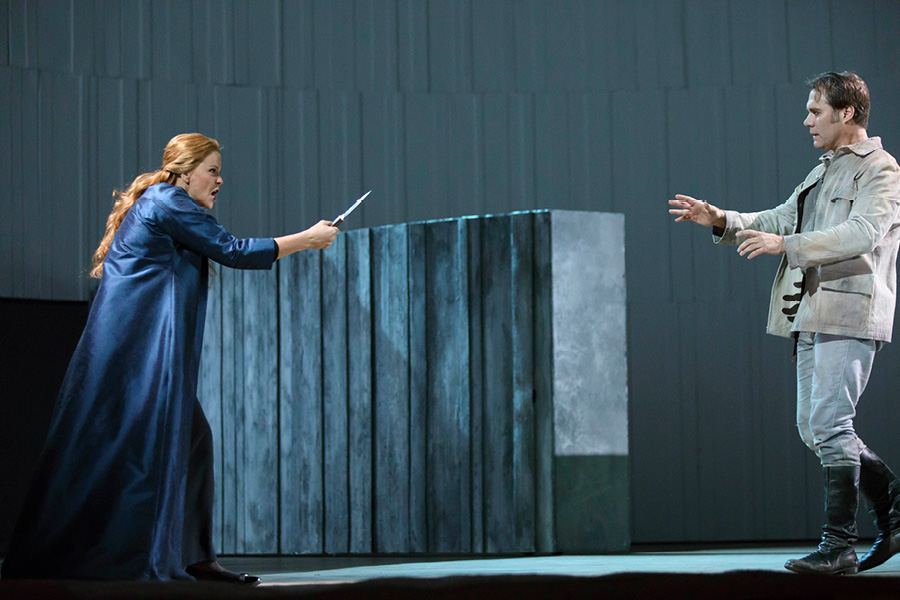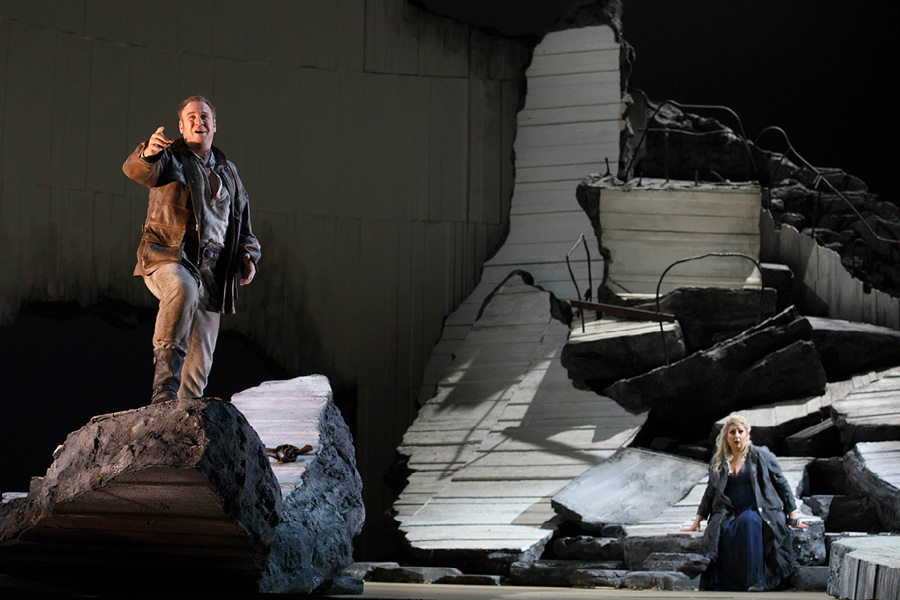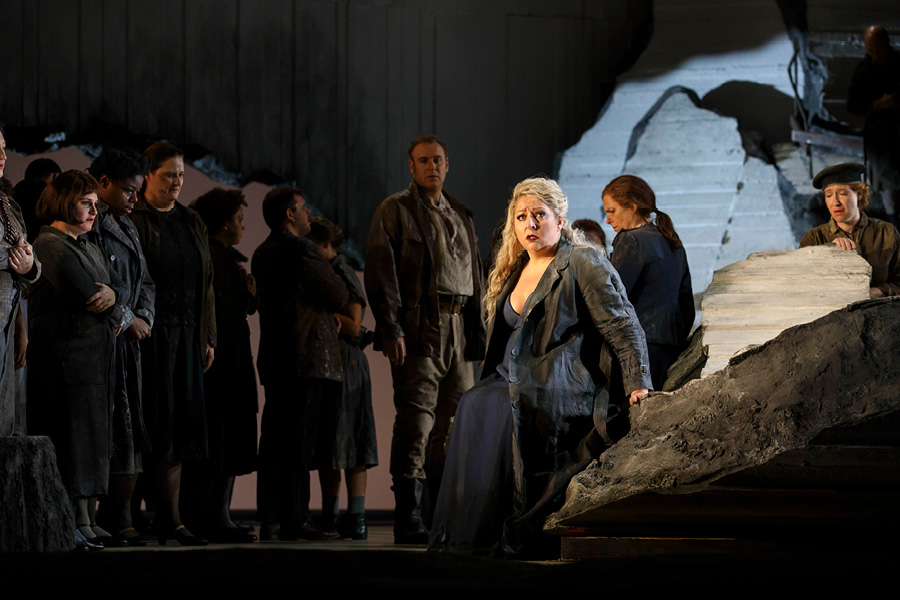March 19, 2021
A Talk with the Director of LES TROYENS
Tim Albery spoke with Lyric’s dramaturg, Roger Pines
This article originally appeared in the program for Les Troyens, 2016/17 Season.
Roger Pines: What makes this opera so compelling?
Tim Albery: The reason probably comes from Berlioz’s passion for the original material, the Aeneid. He was determined to find a way of telling the story of Aeneas’s journey from the destruction of Troy to the founding of Rome. Although Les Troyens is long and has moments where it seems to divert from its main story, nonetheless it seems to fly forward like a speeding arrow towards the death of Dido, the destruction of Carthage, and the creation of Rome.
Pines: How do you create a structure onstage to give a sense of the work’s arc from beginning to end?
Albery: We’re showing how both halves of the opera are connected. This is a narrative of empires falling, rising, and falling again. We see Troy fall, we see Carthage brand new, and at the end Carthage falls (at least in Dido’s imagination) because the Rome that Aeneas is destined to create will rise—and of course, we all know that Rome will then fall. So the Troy we present is a city crumbling after ten years of siege, and Carthage is then a brand-new world, but also they are very, very similar to each other.
Pines: How do you achieve that visually?
Albery: We see Troy’s enormous city wall and tower that have collapsed in many places, with piles of rubble and concrete. They are built on a desert floor. Then in the second half Carthage is a reconstructed version of what we saw in the first half, with a complete, curved city wall and city tower. It’s as if someone had come onstage in the intermission and rebuilt the shattered ruins of the first half to make them new.

Pines: What do you envision for the Royal Hunt and Storm?
Albery: The purely orchestral music starts with a beautiful vision of nature at peace and gradually builds to an enormous storm. Then the storm subsides to a gentle, lazy calm. So it mirrors the buildup to sexual ecstasy and then post-coital exhaustion, if you like. Berlioz describes a scenario of Dido and Aeneas out hunting and taking refuge from the storm in a cave. We use dancers to mirror their relationship. They’re not so much the naiads, dryads, and the other creatures of Berlioz’s libretto; more, they are multiple Didos and Aeneases living out her dream of a passionate affair with him.
Pines: Berlioz seems so attached to his characters, especially Cassandra and Dido.
Albery: He’s created a musical world that comes out of his intense emotional commitment to these people and to what happens to them. He knows all there is to know about them; he’s lived with them since he was a child, when his father would read him the Aeneid. In the music there’s no distance between the material and the composer.
Pines: What is the essence of the two leading women that you want to make sure comes through onstage?
Albery: Their vulnerability is most interesting. Cassandra, as the seer tormented by visions, is continually attacking those she loves for their blindness to her truth—“No, no, you’re all wrong and I’m right and we’re all going to Hell!”—but she’s incredibly vulnerable and distraught at what is happening. Dido continually lets us into her damaged heart, which lies hidden and suppressed beneath her role as sole ruler of a displaced people trying to rebuild their lives. We see how horrified she is by her feelings and how dangerous they are to her. Berlioz was a “crier”; to talk in clichéd terms, he had a very feminine, delicate sensibility, and was probably over-vulnerable and emotional himself. He identifies strongly with these people who are damaged by history.

Chorebus (Lucas Meachem) and Cassandra (Christine Goerke)
Pines: How do we explain Aeneas’s decision to leave Dido?
Albery: He arrives as a refugee, Dido willingly gives him shelter, and they fall in love. Clearly she’d be happy to share the throne with him. So we ask ourselves, “He’s got his Italy here in Carthage—why isn’t that enough for him?” But a voice in Aeneas’s head keeps going, “Italy, Italy, Italy” and he can’t shake it off. At some level he’s thinking, “It’s not enough for someone to give it to me. Although I love Dido, I need to make this new country myself.” You could say it’s a metaphor for male ego and ambition. It’s a terrible irony: he’s got his Italy right there, but he just can’t accept it.
Pines: What do you want to leave audiences with from this experience?
Albery: It’s as big an experience, I think, as hearing a part of the Ring cycle, Götterdämmerung say, but it’s simpler, it’s all emotion: a great, epic narrative told in a way that’s instantly accessible. You’re also never left in any kind of stasis for very long, and when you are, it’s such a deliberate contrast and so beautiful. For example, the duet between Dido and Aeneas where they finally admit their love for each other beneath the stars at night; the music and time seem to stop, we’re there with the night sky, seeming to step outside into the universe and look down at the world. And then the moment is over, time speeds up again, and the lovers hurtle towards his departure and her destruction.

Cassandra (Christine Goerke)
Photo credit: Todd Rosenberg

Dido (Susan Graham) and Aeneas (Brandon Jovanovich)